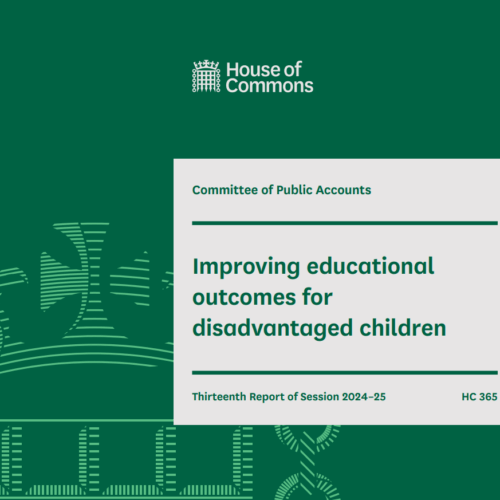The Committee of Public Accounts today published the findings of their inquiry into improving educational outcomes for disadvantaged children. The disadvantage gap has increased significantly in recent years, with children from disadvantaged backgrounds approximately 10 months behind at the end of key stage 2 and 19 months behind their more affluent peers by the end of key stage 4i.
The Department for Education is committed to providing universal free school breakfasts to primary aged children and young people, which has been shown to improve attainment, attendance and behaviourii. Breakfast provision is being piloted through the Department’s Early Adopters Scheme ahead of a national rollout. Magic Breakfast welcomes recommendations from the Committee report to support schools in being able to provide effective, stigma-free and hunger-focused breakfast provision for all children and young people.
Building an understanding of what works
The Committee recommends that the Department for Education continue to build understanding of what works, with Magic Breakfast calling for the Department to undertake appropriate monitoring and evaluation as part of the Early Adopters Scheme to increase the understanding of what works for schools ahead of a national policy rollout.
Fully funded breakfast provision
With almost half of schools reportedly using Pupil Premium funding to ‘plug gaps’ in school budgets, there is a risk that an underfunded breakfast policy would result in schools having another budget gap, potentially taking more money away from pupil premium strategies. It is vital that the Department learn from the Early Adopters Scheme to ensure the national rollout of breakfast provision is adequately funded.
The importance of wellbeing
Magic Breakfast welcomes the Committee recommendation that the Department should consider wider outcomes alongside academic attainment, such as wellbeing and progression into work. Children and young people should be supported to have happy and fulfilling lives – UK children and young people have one of the lowest levels of life satisfaction in the OECDiii, which in turn can affect long-term academic achievement and social outcomes.
Cross-government opportunity
It is encouraging to see the Committee recommends that the Department outlines a plan for cross-government working aligned to the ‘Opportunities Mission’. Magic Breakfast evidence shows that school breakfast provision impacts more than educational outcomes, for example, school breakfasts are shown to positively impact health outcomes by providing a nutritional safety net for children and young peopleiv. We would encourage the Department to work alongside other government departments, such as the Department for Health and Social Care, to better align data for monitoring and measuring the impact of interventions on children and young people.
Magic Breakfast is encouraged by the recommendations outlined in the report and would like the Department for Education to take these into account when monitoring and evaluating the Early Adopters Scheme for universal breakfast provision. The pilot of breakfast clubs is an opportunity to ensure that the national policy rollout is appropriately funded and evaluated to ensure the best outcomes for children and young people.
[i] Education Policy Institute, 2024. Annual Report: Disadvantage
[ii] Education Endowment Foundation, 2017. Magic Breakfast – trial.
[iii] PISA, 2022. United Kingdom – Student performance.
[iv] Magic Breakfast, 2023. Rise and Shine: How breakfast impacts children and young people.






